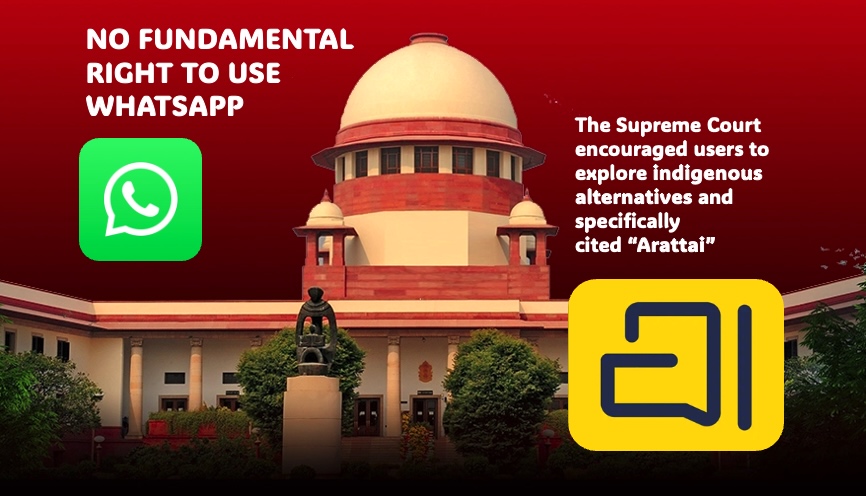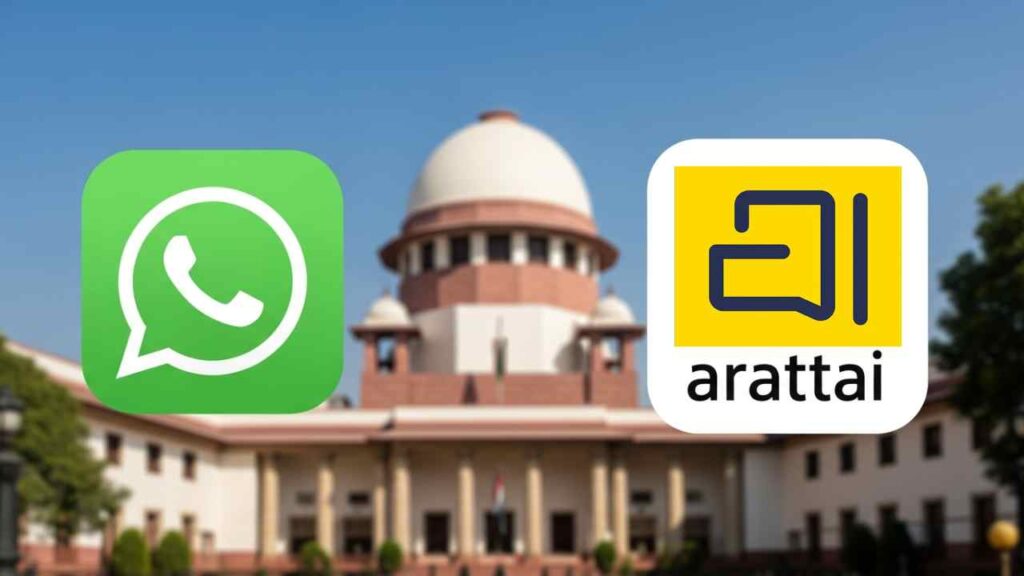In a case that has reignited debate over digital rights and India’s reliance on foreign apps, a woman doctor’s plea against WhatsApp has reached the Supreme Court. The petitioner, Dr. Raman Kundra, approached the apex court after her WhatsApp account was blocked without explanation — disrupting both her professional and personal communications.
However, the court’s response sparked a larger conversation. During the hearing, Justice Sandeep Mehta suggested that instead of insisting on WhatsApp access, users could simply shift to “Arattai”, a Made-in-India messaging app developed by Zoho Corporation.
The Petition: A Fight for Digital Fairness
Represented by senior advocate Mahalakshmi Bhavani, Dr. Kundra argued that WhatsApp had suspended her account on September 13, 2025, without prior notice. She described the platform as a vital communication tool for her medical practice, claiming that its sudden suspension amounted to a violation of her fundamental rights.
The plea questioned whether digital connectivity — now essential to everyday life — should be protected as part of the right to livelihood and expression.
When contacted, WhatsApp maintained that the account “will remain blocked,” offering no explanation. This led Dr. Kundra to seek judicial intervention.
Courtroom Moment: The Arattai Remark
During the hearing on October 10, Justice Mehta questioned the notion that using WhatsApp could be considered a constitutional right.
“How can access to WhatsApp be a fundamental right? There are several other platforms. For example, use Arattai — it’s a Made-in-India app,” the judge observed.
The remark drew mild laughter in court but carried a serious undertone — a reminder that dependence on foreign digital platforms can have consequences.
Arattai: India’s Homegrown Alternative
Arattai, meaning “chit-chat” in Tamil, is Zoho Corporation’s answer to WhatsApp and Signal. It supports instant messaging, video calls, media sharing, and group chats — all backed by Indian servers and privacy standards.
The app has gained attention after Prime Minister Narendra Modi’s “Vocal for Local” campaign. In 2025, Arattai became the No. 1 social networking app on Apple’s App Store in India, surpassing WhatsApp and Signal in downloads.

A Push Toward Digital Independence
Legal and tech experts believe the court’s comment symbolizes more than just advice — it reflects India’s growing push toward digital self-reliance. The case raises vital questions about accountability, transparency, and the unchecked influence of foreign tech giants.
With millions of Indians depending on global apps for communication, the issue has gone beyond personal inconvenience — it’s about digital sovereignty and user rights.
Beyond the Ban
While Dr. Kundra’s petition didn’t result in the reinstatement of her account, it succeeded in sparking a national conversation.
Should access to major communication apps be a fundamental right — or are they merely private conveniences?
The Supreme Court’s answer was clear: no app is above the Constitution. Yet, the bench’s endorsement of Arattai signals a larger truth — the future of India’s digital journey may lie not in Silicon Valley, but right here at home.


